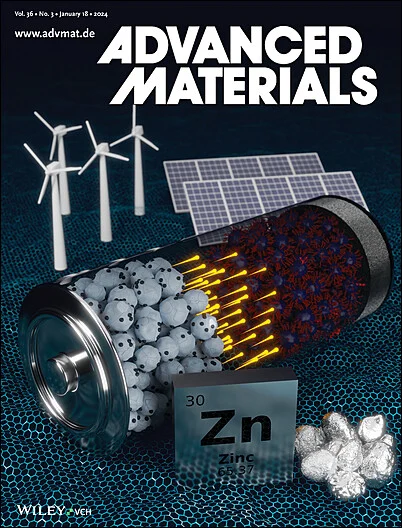Bioactive Materials-Mediated Regulation of Bone Marrow Microenvironment: Mechanistic Insights and Therapeutic Potentials.
IF 26.8
1区 材料科学
Q1 CHEMISTRY, MULTIDISCIPLINARY
引用次数: 0
Abstract
The bone marrow microenvironment(BME) maintains bone homeostasis through multi-cellular cooperation and signal crosstalk, its dysregulation drives pathological bone loss. In recent years, Materiobiology, a scientific discipline studying how biomaterial properties affect biological functions, has opened new avenues for the precise regulation of this complex microenvironment. Biomaterials enable sophisticated regulation of the BME through biomimetic design and functionalization strategies. They not only activate osteoblast signaling pathways to promote bone formation but also inhibit osteoclast differentiation and bone resorption functions. Additionally, they integrate nerve and vascular regeneration processes with immunomodulatory mechanisms to optimize stem cell behavior and improve the tissue repair microenvironment. This review comprehensively summarizes advances in biomaterial-mediated BME regulation, emphasizing interdisciplinary integration and intelligent material development to overcome the limitations of conventional therapies. The innovation of intelligent materials lies in their ability to mimic biological systems. Recent research has leveraged generative design models to engineer new thiol-containing antimicrobial peptides. These approaches achieve spatiotemporal coordination of cellular interactions and functional reconstruction during bone regeneration. Future efforts need to address challenges in material stability, personalized adaptation, and clinical translation, promoting cross-scale therapeutic innovation from molecular intervention to tissue regeneration, providing revolutionary solutions for bone metabolic diseases and complex defect repair.生物活性物质介导的骨髓微环境调控:机制见解和治疗潜力。
骨髓微环境(bone marrow microenvironment, BME)通过多细胞合作和信号串扰维持骨稳态,其失调导致病理性骨质流失。近年来,材料生物学作为一门研究生物材料特性如何影响生物功能的科学学科,为精确调控这一复杂的微环境开辟了新的途径。生物材料可以通过仿生设计和功能化策略对BME进行复杂的调节。它们不仅激活成骨细胞信号通路促进骨形成,而且抑制破骨细胞分化和骨吸收功能。此外,他们将神经和血管再生过程与免疫调节机制结合起来,优化干细胞行为,改善组织修复微环境。本文综述了生物材料介导BME调控的研究进展,强调跨学科整合和智能材料的开发,以克服传统治疗方法的局限性。智能材料的创新在于其模拟生物系统的能力。最近的研究利用生成设计模型来设计新的含硫醇的抗菌肽。这些方法实现了骨再生过程中细胞相互作用和功能重建的时空协调。未来的努力需要解决材料稳定性、个性化适应和临床转化方面的挑战,促进从分子干预到组织再生的跨尺度治疗创新,为骨代谢疾病和复杂缺陷修复提供革命性的解决方案。
本文章由计算机程序翻译,如有差异,请以英文原文为准。
求助全文
约1分钟内获得全文
求助全文
来源期刊

Advanced Materials
工程技术-材料科学:综合
CiteScore
43.00
自引率
4.10%
发文量
2182
审稿时长
2 months
期刊介绍:
Advanced Materials, one of the world's most prestigious journals and the foundation of the Advanced portfolio, is the home of choice for best-in-class materials science for more than 30 years. Following this fast-growing and interdisciplinary field, we are considering and publishing the most important discoveries on any and all materials from materials scientists, chemists, physicists, engineers as well as health and life scientists and bringing you the latest results and trends in modern materials-related research every week.
 求助内容:
求助内容: 应助结果提醒方式:
应助结果提醒方式:


